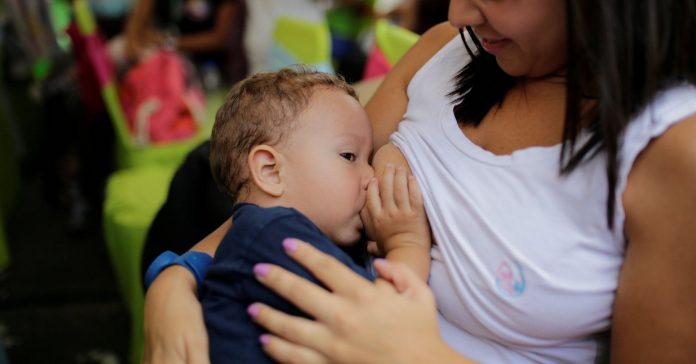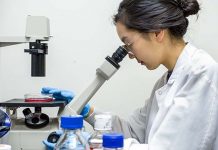A new study has found that mothers of babies in households with food insecurity are less likely to breastfeed exclusively for the recommended six months after birth.
The study, published Monday in the Canadian Medical Association Journal, found that half of the women who lived in households with food insecurity — inadequate or unpredictable access to food because of financial issues — stopped giving their baby only breast milk by the time the child was two months of age.
Of mothers in homes where food security was not an issue, fewer than 40 per cent stopped.
The researchers, including associate professor Lesley Frank of Acadia University’s sociology department, used data from 10,450 women who participated in the Canadian Community Health Survey between 2005 and 2014.
Of those respondents, 17 per cent lived in households with some level of food insecurity.
The study found that most women initiated breastfeeding: 91.6 per cent of those with food security, 88.8 per cent of those with marginal food insecurity, 83.3 per cent of those with moderate food insecurity and 86 per cent of those with severe food insecurity.
Stopping exclusive breastfeeding can be problematic because infants and babies may miss out on the physical and emotional benefits, but formula-feeding is an additional financial burden for families.
“It seems kind of counter-intuitive that a mom who lives in a food-insecure household would not breastfeed,” Frank said Tuesday.
While the study only looked at the association between food insecurity status and the initiation of breastfeeding and length of time of exclusive breastfeeing, Frank has spent years studying the reasons women with limited finances stop.
“It is the question that comes to mind when people hear the results,” she said. “It doesn’t seem logical.”
She said that in interviewing women across the province as part of her own research, she found that the two main reasons for wanting to breastfeed was because they believed it was the best option for the baby’s health, and because they felt it was the only affordable option.
“These two reasons go hand-in-hand,” Frank said. “Food insecurity was also, though, the driving factor to why they might stop early, which is what was quantified in this paper that was just released.”
She said women would stop because they were food insecure themselves, “and women have a tendency to prioritize the feeding of everyone else in the household before themselves as part of their ethic of mothering and caring and being responsible for the feeding in the home, so they’re the last to eat.”
She said women were also nutritionally concerned about the quality of their breast milk if they weren’t eating very much themselves.
“I haven’t done a medical study. I don’t know the physiological pathways that might lead to the experience of mothers feeling they have a poor milk supply either in amount or quality,” Frank said. “There hasn’t been a lot of research on that in high-income countries.”
She said food insecurity could be a stress factor as well.
“Prolonged exposure to stress has biological implications that we’re increasingly becoming aware of,” she said. “Whether it’s a perception of theirs about their milk, or whether it’s a reality, doesn’t really matter because it all leads to the same end: that they stop breastfeeding.”
That means their milk supply decreases and they move on to infant formula either exclusively or as a supplement, which is not really affordable for someone with financial restrictions.
Frank said that leads to mothers prioritizing the purchase of formula at the expense of other people in the household.
“You can supplement the diets of other people in the household from food charity sources in a way that you can’t often with formula.”
She said mothers can’t get formula often through charities, “and if you can get it at a food bank it’s kind of random and haphazard, and mothers are always switching the type of formula that they can get for free from wherever. That causes all kinds of other negative health outcomes.”
The authors of the study released Monday, which also includes researchers from the University of Toronto and Public Health Ontario, said their findings “raise serious questions about the adequacy of existing supports for mothers vulnerable to food insecurity.”
Frank said infant food security depends on maternal food security.
“Mothers need to be able to eat to be productive producers of food,” she said. “We need to support the work of feeding the baby economically.”
She said maternity leave, which only covers a bit more than half a mother’s pay, does not help, and for someone only making minimum wage, extended parental leave “only means that you’re poor longer.
“It’s a serious problem. If we’re expecting mothers to be responsible to feed infants through their bodies, we need them to be economically secure and able to do that.”
She said she thinks the solutions are income-based.
“It’s not making food banks better and having access to formula in food banks. That is not the organization that should be dealing with this issue,” she said.
Better access to maternity leave, or income supplement programs for new and expecting mothers, would be helpful, she said. There are some in Manitoba and Newfoundland and Labrador, but there is no national program for access to food for infants.
Such programs are available in the United Kingdom and the United States, she said.




